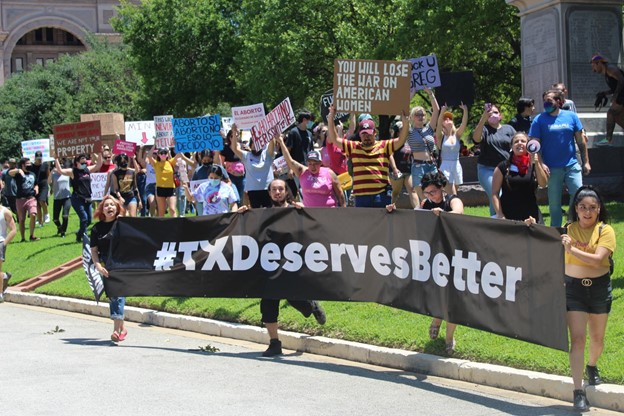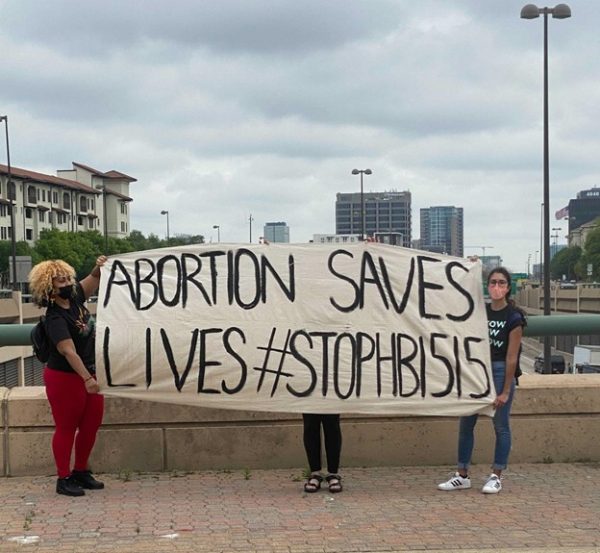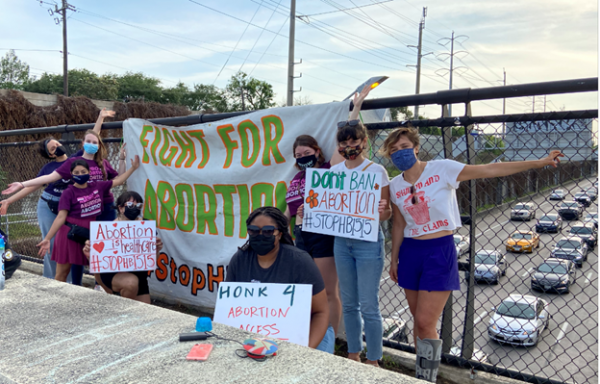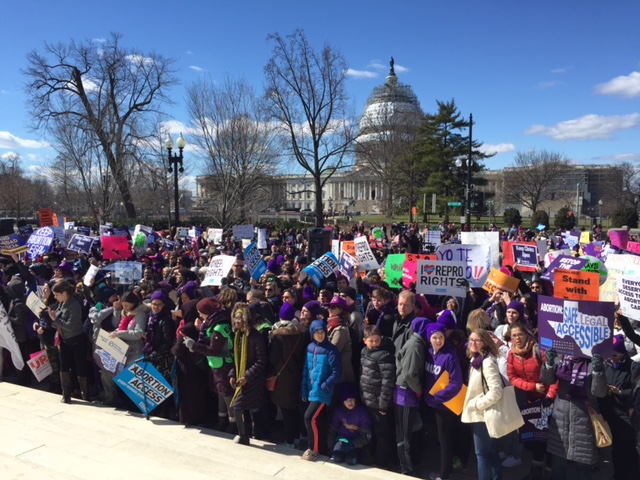Abortion rights, women of color, and LGBTQIA+ people are under attack. Pledge to join us in fighting for gender justice.
This Could Be The Worst Year for Abortion Rights Since 2011—And Texas Lawmakers Are Leading The Charge. Here’s What You Can Do.

The Rosie’s Law Campaign is an effort led by Texas abortion funds, Frontera Fund, Lilith Fund, and Texas Equal Access Fund, to restore Medicaid and private insurance coverage of abortion for Texans.
2021 is shaping up to be the worst year for abortion rights. And as usual, anti-abortion lawmakers in Texas are leading the charge, most recently passing a near total ban on abortion in Texas that would allow anyone, anywhere to sue abortion providers, abortion funds, and anyone else that helps someone get an abortion. Here’s what you need to know:
- The Numbers: According to the Guttmacher Institute, by the beginning of June, anti-abortion lawmakers had introduced over 560 abortion restrictions, including 165 abortion bans, and enacted more than 83 restrictions at the state lev In Texas, anti-abortion lawmakers introduced almost 50 abortion restrictions and pushed 7 of them through the legislative process. One bill would have added people seeking abortion care to a registry and forced them to speak with anti-abortion organizations before accessing care. Another unnecessarily banned the use of medication abortion after 7 weeks.
- What would these abortion restrictions do? They chip away at or, as with abortion bans, directly challenge the right to abortion under Roe v. Wade, with the end goal of making access to abortion more difficult or even impossible. Abortion bans are particularly plentiful this year: some states, like South Carolina, passed laws that ban abortion at a particular point in pregnancy. Others, like Arizona, passed laws that ban abortion based on the pregnant person’s reason for an abortion. Idaho passed both! As shared above, Texas Governor Greg Abbott signed a bill to ban abortion as early as 6 weeks gestation, and would subject Texans to harassing lawsuits for helping someone access abortion care. There is no exemption for rape or incest. Governor Abbott has also signed a “trigger ban,” which would ban abortion with few exemptions if the Supreme Court overrules Roe v. Wade and which would make it a felony to provide abortion care.

- Why so many this year? The unprecedented number of abortion restrictions are a direct result of the new make-up of the courts—both the Supreme Court and the lower federal courts—due to judges put in place by former President Trump and a Senate controlled by Mitch McConnell. This has emboldened state lawmakers to pass anti-abortion laws. For example, when signing the Arkansas ban on abortion, Governor Hutchinson said “it is the intent of the legislation to set the stage for the Supreme Court overturning current case law.”
- Who is most impacted? In short, the same folks who already have the worst access to health care. People struggling to make ends meet, women of color, people living in rural areas or in border towns, immigrants, and LGBTQ folks will suffer the most from these laws. Particularly now, while the country is battling a public health crisis, people need access to health care–including abortion. In Texas, 7% of women and 37% of female-headed households live in poverty, and studies show that a woman who seeks an abortion but is denied is more likely to fall into poverty than one who is able to get an abortion. Though 18% of Texans are uninsured, twice the national average, Texas legislators refused once again to expand Medicaid eligibility. It is clear that Texas’ most underserved communities are not our state leaders’ top priority.
- State-based reproductive rights and justice organizations are leading efforts to ensure abortion access. In Texas, our Rosie’s Law Campaign led by Frontera Fund, Lilith Fund, and TEA Fund is committed to fighting to restore abortion access until everyone can access abortion care, no matter who they are, where they live, or how much money they make. Together with our partners at the Respect. Access coalition, as abortion funds we have fought back against this session’s draconian abortion restrictions every step of the way, most recently rallying with over 1,000 Texans and marching from the Texas capitol to the Governor’s mansion to demand “Don’t Mess with Texans’ Abortions!” Not only are we fighting against abortion restrictions, our Rosie’s Law Campaign is also fighting for proactive policies to expand access to abortion care, like Rosie’s Law, which will ensure Texans can use their Medicaid or private insurance to pay for their abortion care. It will be an uphill battle, but we will continue to fund abortion and organize and one day we will win.

We know that’s all overwhelming, so here’s how you can help:
- Get involved. Follow the lead of reproductive rights and justice champions working on the ground to fight bad bills and push proactive efforts in your state. Join Texas advocates in their fight.
- Send money! Abortion funds and abortion clinics that help pregnant people get the abortion care they need can use your help more than ever. Consider donating to Texas Abortion Funds and National Network of Abortion Funds.
- Bust abortion stigma. Say abortion out loud, have conversations with your friends and loved ones about abortion without shame, and talk about the importance of abortion access on social media.
By Ana Rodriguez, Former Campaign Coordinator and Heather Shumaker





